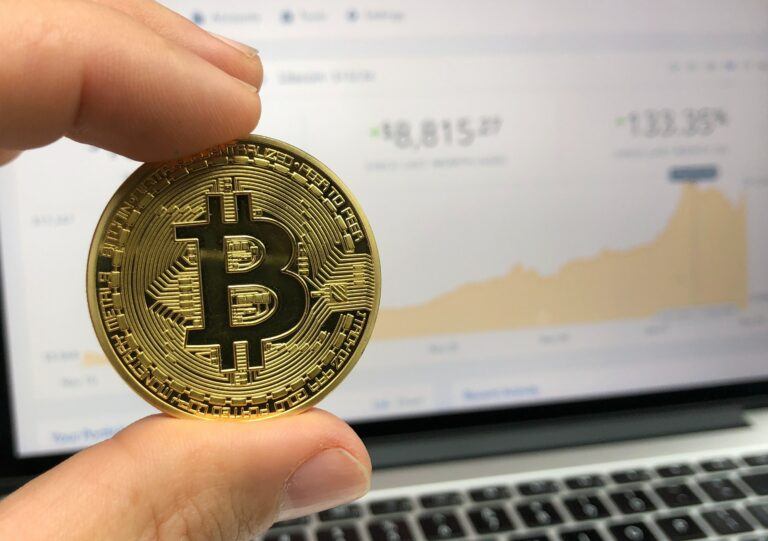On Monday (20 August 2018), Bakkt, the new company announced by Intercontinental Exchange (ICE) on 3 August 2018, declared that with its solution, “the buying and selling of bitcoin is fully collateralized or pre-funded.”
ICE’s press release mentioned that Bakkt would be offering a one-day phsyically-delivered Bitcoin futures product:
“As an initial component of the Bakkt offering, Intercontinental Exchange’s U.S.-based futures exchange and clearing house plan to launch a 1-day physically delivered Bitcoin contract along with physical warehousing in November 2018, subject to CFTC review and approval. These regulated venues will establish new protocols for managing the specific security and settlement requirements of digital currencies.”
This is how Bakkt announced today’s news on Twitter:
With our solution the buying and selling of bitcoin is fully collateralized or pre-funded.
Our new daily bitcoin contract will not be traded on margin, use leverage or serve to create a paper claim on a real asset.
— Bakkt (@Bakkt) August 20, 2018
Kelly Loeffler, the CEO of Bakkt, provided more details in a post on Bakkt’s Medium blog.
Loeffler started by saying that to achieve a “trusted infrastructure for trading, storing and spending digital currencies”, Bakkt would need to provide:
- “a consistent regulatory construct”;
- “transparent, efficient price discovery”; and
- “an institutional quality pre- and post-trade infrastructure”
She then moved to the “meat” of Bakkt’s announcement:
“A critical element to price discovery is physical delivery. Specifically, with our solution, the buying and selling of Bitcoin is fully collateralized or pre-funded. As such, our new daily Bitcoin contract will not be traded on margin, use leverage, or serve to create a paper claim on a real asset.”
She noted that this provided support for market integrity and differentiated them from other exchanges which “allow for margin, leverage and cash settlement.” She went on to say that once you take into account the fact that Bakkt also provides “a secure, regulated warehouse solution”, it was easy to see how this infrastructure could “help more institutions and consumers participate in the asset class.”
For many crypto traders/investors and analysts, what Bakkt announced today sounded great. However, not everyone was equally excited.
Caitlin Long, 22-year Wall Street veteran (including over eight years at U.S. investment bank Morgan Stanley) who has been active in Bitcoin since 2012, expressed her concern about “financialization” (i.e. when an asset class becomes investable by large institutional investors) of cryptocurrencies, and especially her worries about “leverage-based financialization” (which arises “either from the issuance of more assets out of thin air to dilute existing holders, or from the creation of more claims to the asset than there are assets”) in an article for Forbes published on 31 July 2018.
Then, on 7 August 2017, a few days after ICE’s announcement about Bakkt, she wrote another interesting article for Forbes Titled “Racing to Fix Wall Street: ICE, Cryptocurrencies And Enterprise Blockchain” that explained how ICE’s move into the crypto space was “a double-edged sword”. More specifically, she warned us about the possibility of seeing “fractionally-reserved bitcoin”, i.e. more “paper claims to bitcoin (created off-chain) than there are real bitcoins on-chain” (with the danger being that that these paper claims would “offset bitcoin’s natural scarcity to some degree, thereby suppressing bitcoin’s price”).
Upon hearing Bakkt’s announcement earlier today, Long sent out the following tweets to explain that although the confirmation that Bakkt’s daily Bitcoin contract would not be traded on margin, use leverage, or serve to create a paper claim on a real asset” was a good thing, she still had a few reservations:
1/ Interesting response from @Bakkt today. For #bitcoin this is good news/bad news. First the good–Bakkt disclosed it's not using margin or leverage (explicitly). That's positive. But then the bad–it was silent about hidden leverage, which is subtle…https://t.co/zkt5RKr4Z2
— Caitlin Long (@CaitlinLong_) August 20, 2018
2/ …and insidious–namely, rehypothecation & commingling of collateral in the clearinghouse, rather than in an individual futures contract itself. Read about how commingling & rehypothecation happen here: https://t.co/uRFT8QBYq6
— Caitlin Long (@CaitlinLong_) August 20, 2018
3/ …and, having negotiated collateral agreements as a pension fiduciary (& tried to get CCPs to agree not to commingle or rehypothecate collateral), this is where the devil is truly in the details. A standard collateral agreement is here (see para 6c): https://t.co/5dqdrN27g0
— Caitlin Long (@CaitlinLong_) August 20, 2018
4/ …I look forward to reviewing all of @Bakkt's legal documents when they're made public (including the warehouse custody agreement, collateral agreements of ICE Clearing US & intraday variation margin posting requirements) to determine degree…
— Caitlin Long (@CaitlinLong_) August 20, 2018
5/ …by which @Bakkt creates fractionally-reserved claims on #bitcoin. Plus, Bakkt didn't answer questions abt how will it handle forks–lots of questions posed on that including by @aantonop. I look forward to reading the complete disclosure package when it's available! Thanks!
— Caitlin Long (@CaitlinLong_) August 20, 2018
Featured Image Credit: Photo via Pexels.com








